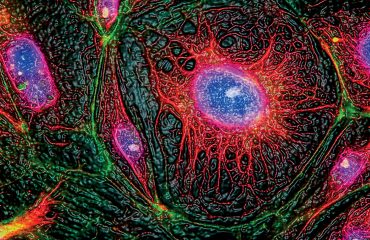We have all heard about the health benefits of green tea, thought to be a powerful antioxidant that helps keep body cells healthy. It’s no longer simply a way to end a meal, or a break in the middle of the day. There are green tea cakes and puddings, cookies and popsicles. You can grab a can of green tea from your local deli. Increasingly, it’s not just seen as a pleasant snack but as a healthy supplement, that improves health and prevents disease.
The internet provides us with articles on ‘Tasty Ways to Add Green Tea to Your Favorite Foods’[i] along with claims that adding green tea to your regime will do everything from keep you slim to preventing cancer. It seems to be a modern-day equivalent to the Castor Oil of the 1950s, when a daily spoonful was widely thought to be essential to children’s growth and development.
But for a tiny minority of people, green tea can have devastating and last effects. The active ingredients that are said to make green tea so beneficial are the very ones that can be detrimental, and in some cases, even life threatening.
The BBC recently reported the story on Jim McCants, a 50 year old financial manager from Texas, who took green tea supplements as part of what he thought was a balanced health regime, including exercise and diet.[ii] A son of a Father who had died at 59, Mr. McCants was determined to do what he could to be present for his own sons’ futures. But it was at his son’s high school graduation that his wife noticed a yellow tinge to his skin and even the whites of his eyes. Within a few days he was admitted to the hospital with liver failure so acute he was told the only way to save his life was a transplant. After going over his tests and ruling out other causes like excessive alcohol consumption, his physicians focused in on any over-the-counter supplements he might be taking.
Though the supplement industry is notorious for the un-regulated nature of its products, it is not only adulterated additives which are a problem with green tea products. Concern has focused on a potentially toxic ingredient called Epigallocatechin-3-gallate or EGCG – the most abundant of the naturally occurring compounds with antioxidant properties in green tea – more commonly known as catechins.
Professor Herbert Bonkovsky, Director of Liver Services at Wake Forest University School of Medicine in North Carolina has been studying the effects of catechins – both good and bad – for almost two decades.[iii] He has found that the excessive amounts found in supplement powders and tablets can be the problem, though other factors do play a role; “If you are drinking modest amounts of green tea you’re very safe. The greater risk comes in people who are taking these more concentrated extracts.”
The impact of green tea’s ingredients are mitigated or amplified by other factors, such a genetics, and the way supplements are used. “Usually people are taking these green tea extracts trying to lose weight, so they’re often not eating,” Dr. Bonkovsky explains. “We know from animal studies that fasted animals absorb a much higher percentage of the catechins than do fat animals. There may well be other factors of other drugs, other chemicals, use of alcohol that are also important as modifying factors.”
The Journal of Nutrition, published by the Oxford Academic Press, notes that there is much we don’t know about the ideal intake of green tea; “Further investigations on mechanisms, the nature of the active compounds, and appropriate dose levels are needed.”[iv]
[i] https://www.cleanplates.com/eat/healthy-pantry/green-tea-food/
[ii] https://www.bbc.com/news/stories-45971416
[iii] https://www.ncbi.nlm.nih.gov/pmc/articles/PMC3769469/
[iv] https://doi.org/10.1093/jn/134.12.3431S
Marianne J. Legato, MD, Ph. D. (hon. c.), FACP is an internationally renowned academic, physician, author, lecturer, and pioneer in the field of gender-specific medicine. She is a Professor Emerita of Clinical Medicine at Columbia University College of Physicians & Surgeons and an Adjunct Professor of Medicine at Johns Hopkins Medical School. Dr. Legato is also the Director of the Foundation for Gender-Specific Medicine, which she founded in 2006 as a continuation of her work with The Partnership for Gender-Specific Medicine at Columbia University. She received an honorary PhD from the University of Panama in 2015 for her work on the differences between men and women.
At its core, gender-specific medicine is the science of how normal human biology differs between men and women and how the diagnosis and treatment of disease differs as a function of gender. Dr. Legato’s discoveries and those of her colleagues have led to a personalization of medicine that assists doctors worldwide in understanding the difference in normal function of men and women and in their sex-specific experiences of the same diseases.
She began her work in gender-specific medicine by authoring the first book on women and heart disease, The Female Heart: The Truth About Women and Coronary Artery Disease, which won the Blakeslee Award of the American Heart Association in 1992. Because of this research, the cardiovascular community began to include women in clinical trials affirming the fact that the risk factors, symptoms, and treatment of the same disease can be significantly different between the sexes. Convinced that the sex-specific differences in coronary artery disease were not unique, Dr. Legato began a wide-ranging survey of all medical specialties and in 2004, published the first textbook on gender-specific medicine, The Principles of Gender-Specific Medicine. The second edition appeared in 2010 and the third edition, dedicated to explaining how gender impacts biomedical investigation in the genomic era, won the PROSE Award in Clinical Medicine from the Association of American Publishers in 2018. A fourth edition is forthcoming.
She also founded the first scientific journals publishing new studies in the field, The Journal of Gender-Specific Medicine, and a newer version, Gender Medicine, both listed in the Index Medicus of the National Library of Medicine. She has founded a third peer-reviewed, open access journal, Gender and the Genome, which focuses on the impact of biological sex on technology and its effects on human life.
Dr. Legato is the author of multiple works, including: What Women Need to Know (Simon & Schuster, 1997), Eve’s Rib (Harmony Books, 2002), Why Men Never Remember and Women Never Forget (Rodale, 2005), Why Men Die First (Palgrave, 2008), The International Society for Gender Medicine: History and Highlights (Academic Press, 2017), and most recently, The Plasticity of Sex (Academic Press, 2020). Her books have been translated into 28 languages to date.
As an internationally respected authority on gender medicine, Dr. Legato has chaired symposia and made keynote addresses to world congresses in gender-specific medicine in Berlin, Israel, Italy, Japan, Panama, South Korea, Stockholm, and Vienna. In collaboration with the Menarini Foundation, she is co-chairing a symposium on epigenetics, Sex, Gender and Epigenetics: From Molecule to Bedside, to be held in Spring 2021 in Italy. She maintains one of the only gender-specific private practice in New York City, and she has earned recognition as one of the “Top Doctors in New York.”





